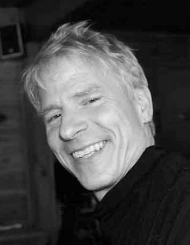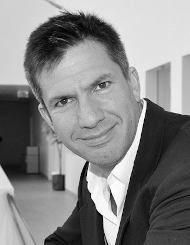
Virtual Event: Christof Koch
presenting
The Feeling of Life Itself:
Why Consciousness Is Widespread but Can't Be Computed
in conversation with GABRIEL KREIMAN
DateOct
13
Tuesday
October 13, 2020 5:00 PM ET |
LocationJoin our online event (or pre-register) via the link in the event description.
|
Tickets
Free - $5 contribution suggested at registration
|
Harvard Book Store's virtual event series, the Harvard University Division of Science, and the Harvard Library welcome renowned neuroscientist CHRISTOF KOCH—Chief Scientist of the MindScope Program at the Allen Institute in Seattle and author of Consciousness: Confessions of a Romantic Reductionist—for the paperback release of his latest book, The Feeling of Life Itself: Why Consciousness Is Widespread but Can't Be Computed. He will be joined in conversation by GABRIEL KREIMAN, professor in the Department of Ophthalmology at Harvard Medical School.
Contribute to Support Harvard Book Store
While payment is not required, we are suggesting a $3 contribution to support this author series, our staff, and the future of Harvard Book Store—a locally owned, independently run Cambridge institution. In addition, by purchasing a copy of The Feeling of Life Itself on harvard.com, you support indie bookselling and the writing community during this difficult time.
About The Feeling of Life Itself
In The Feeling of Life Itself, Christof Koch offers a straightforward definition of consciousness as any subjective experience, from the most mundane to the most exalted—the feeling of being alive.
Psychologists study which cognitive operations underpin a given conscious perception. Neuroscientists track the neural correlates of consciousness in the brain, the organ of the mind. But why the brain and not, say, the liver? How can the brain, three pounds of highly excitable matter, a piece of furniture in the universe, subject to the same laws of physics as any other piece, give rise to subjective experience? Koch argues that what is needed to answer these questions is a quantitative theory that starts with experience and proceeds to the brain. In The Feeling of Life Itself, Koch outlines such a theory, based on integrated information.
Koch describes how the theory explains many facts about the neurology of consciousness and how it has been used to build a clinically useful consciousness meter. The theory predicts that many, and perhaps all, animals experience the sights and sounds of life; consciousness is much more widespread than conventionally assumed. Contrary to received wisdom, however, Koch argues that programmable computers will not have consciousness. Even a perfect software model of the brain is not conscious. Its simulation is fake consciousness. Consciousness is not a special type of computation—it is not a clever hack. Consciousness is about being.
Praise for The Feeling of Life Itself
"Christof Koch has been leading the charge in consciousness science since there was a charge to lead. His latest book showcases his writerly instincts as well as his scientific acumen, drawing on his deep involvement in the field to paint a compelling picture of the science of experience itself." —Anil K. Seth, Professor of Cognitive and Computational Neuroscience, University of Sussex; editor of 30 Second Brain
"Koch’s controversial and witty book provides a broad view of consciousness, together with a thorough review of his scientific research, inspired by Francis Crick. It discusses issues such as the existence of consciousness in other species and attempts at developing tools and techniques to measure it." —Ada Yonath, Director of the Helen and Milton A. Kimmelman Center for Biomolecular Structure and Assembly of the Weizmann Institute of Science; winner of the Nobel Prize in Chemistry, 2009
The Harvard Science Book Talks series is a collaboration between the Harvard University Division of Science, the Harvard Library, and Harvard Book Store. The series features talks by the authors of recently published books on a variety of science-related topics and is open to both the Harvard community and to the general public. Typically, lectures are followed by a book signing with the author and refreshments. Learn more and watch recordings of past talks here.
(617) 661-1515
info@harvard.com
Media Inquiries
mediainquiries@harvard.com
Accessibility Inquiries
access@harvard.com
Classic Totes
Tote bags and pouches
in a variety of styles,
sizes, and designs, plus mugs, bookmarks, and more!
Shipping & Pickup
We ship anywhere in the U.S. and orders of $75+ ship free via media mail!
Learn More »Noteworthy Signed Books: Join the Club!
Join our Signed First Edition Club (or give a gift subscription) for a signed book of great literary merit, delivered to you monthly.
Learn More »










